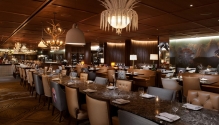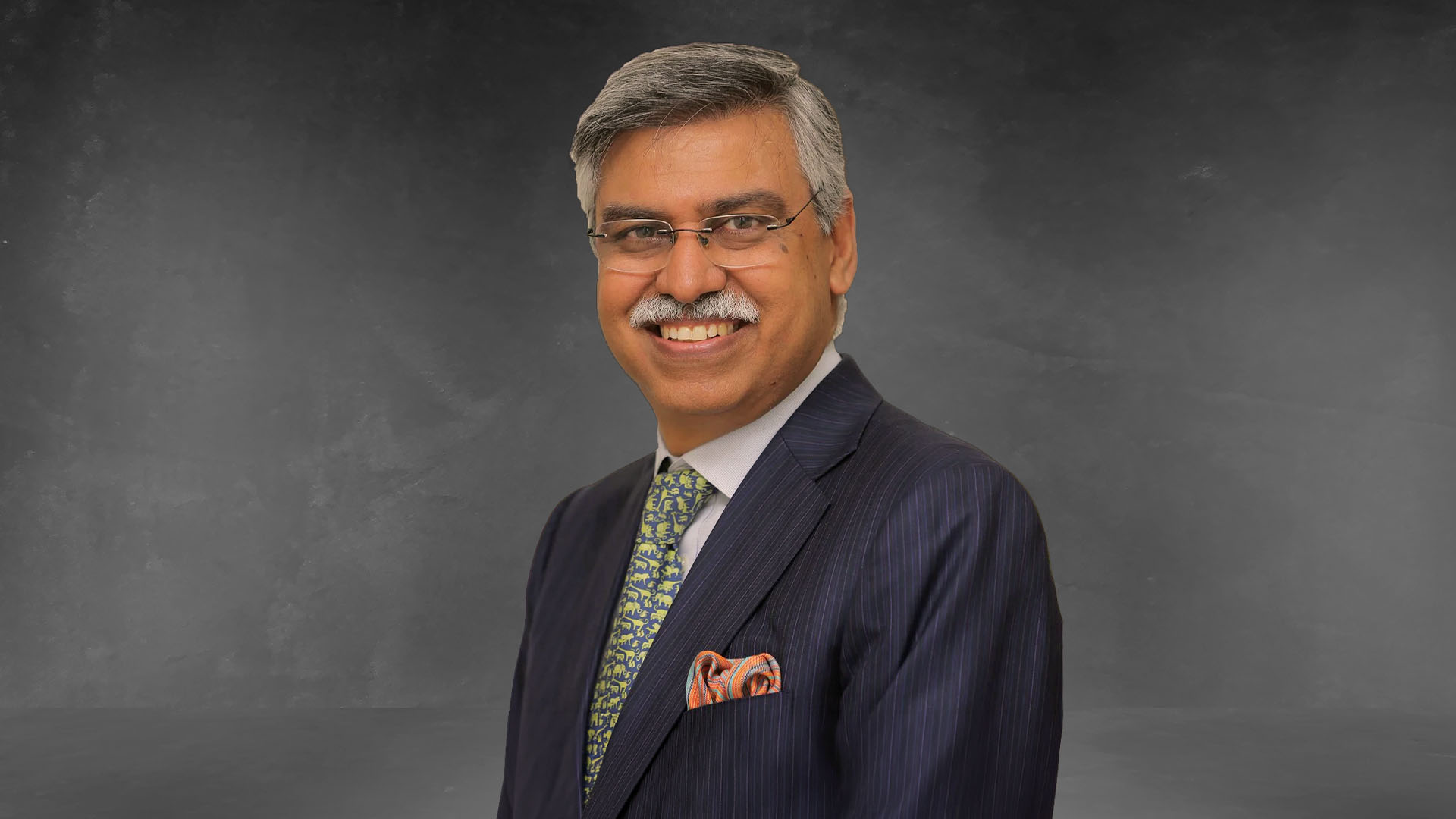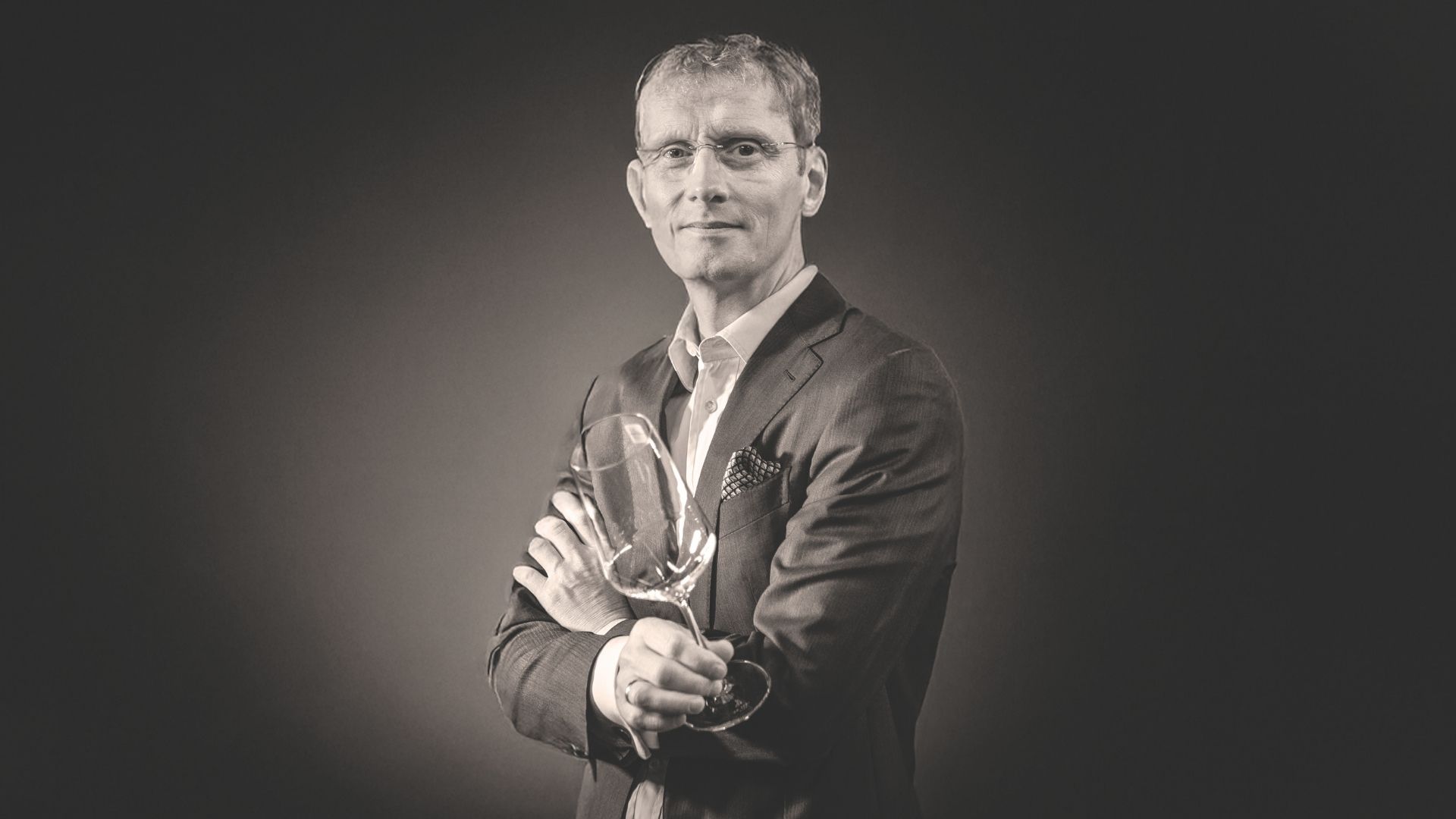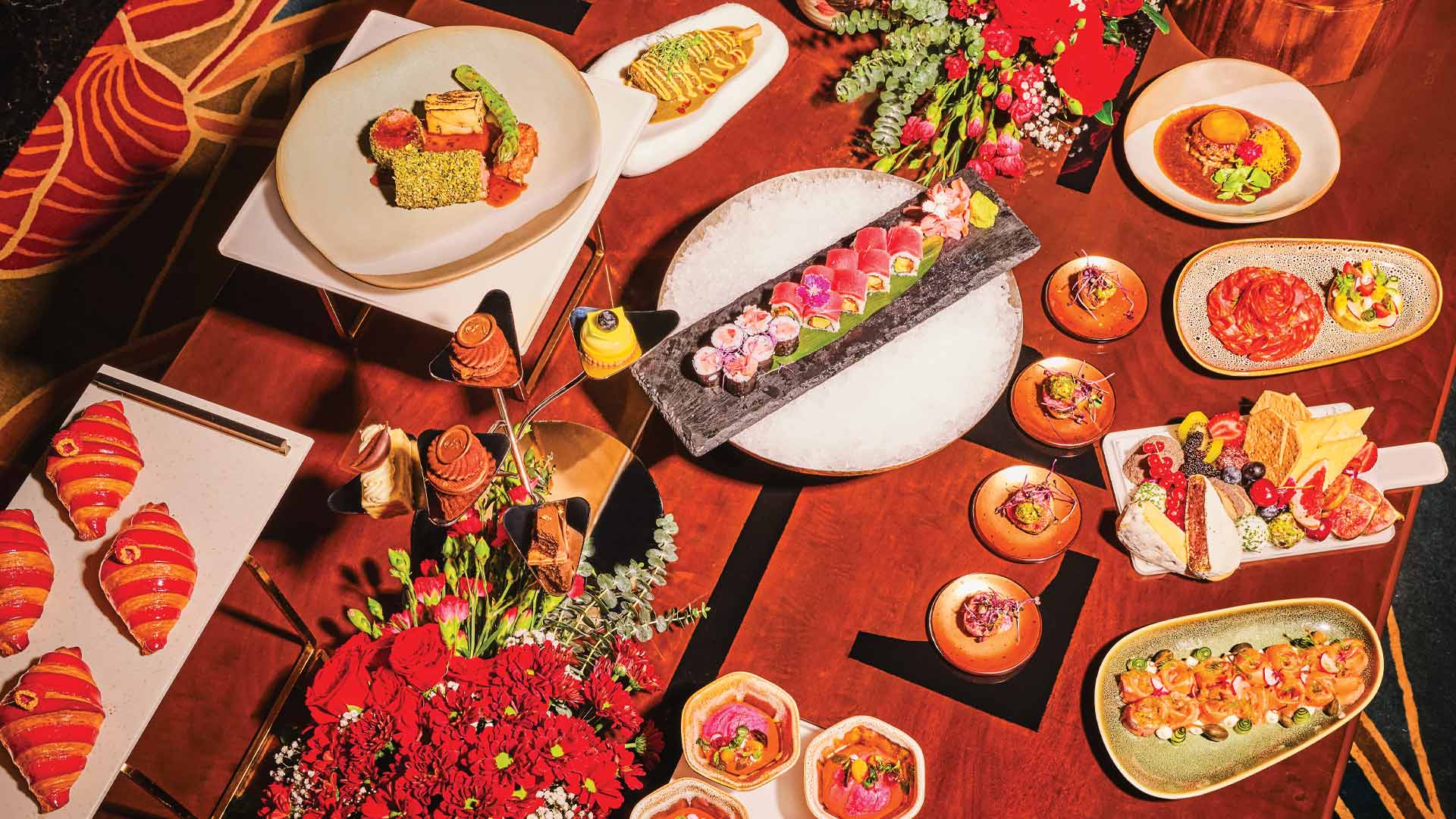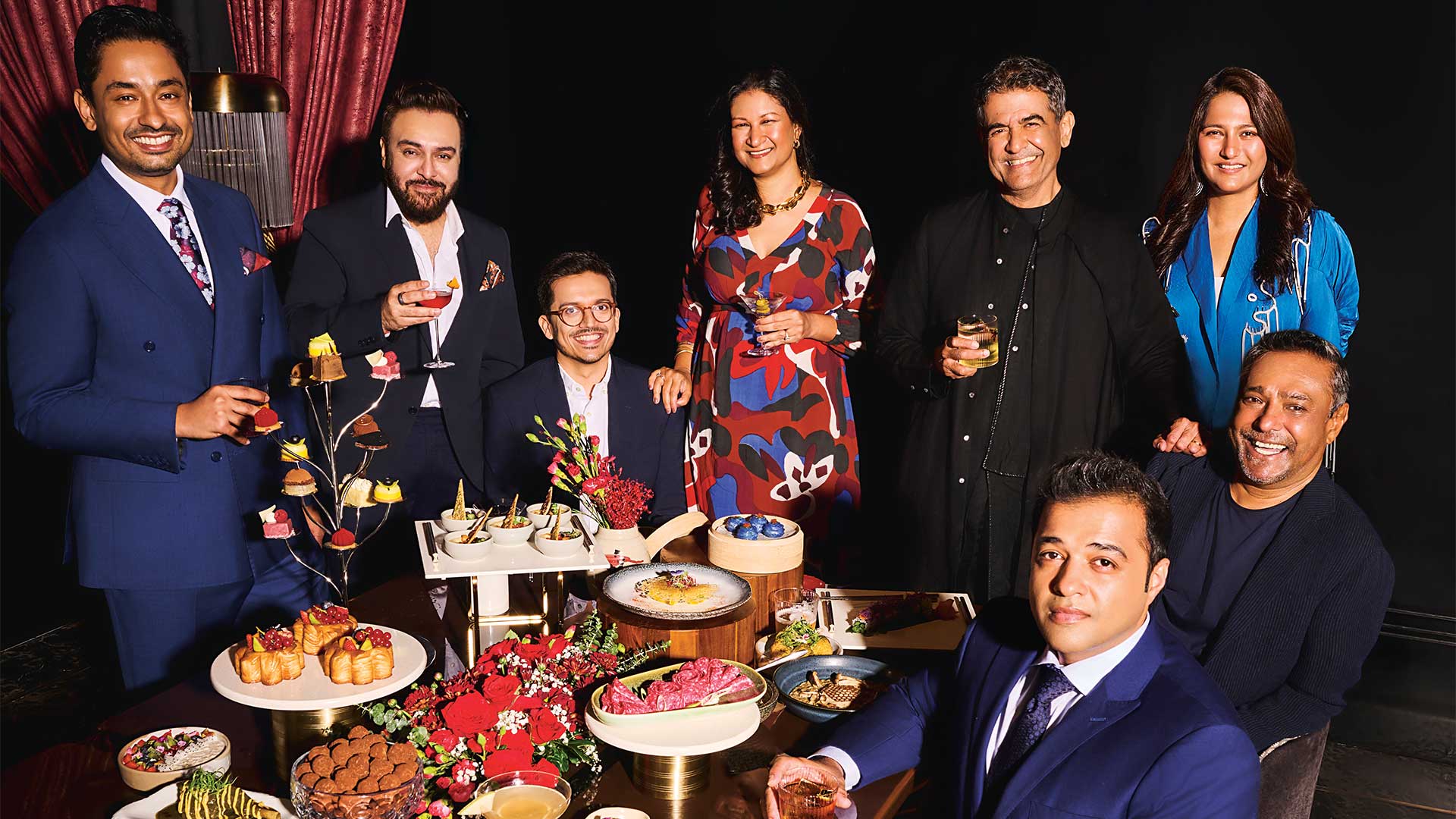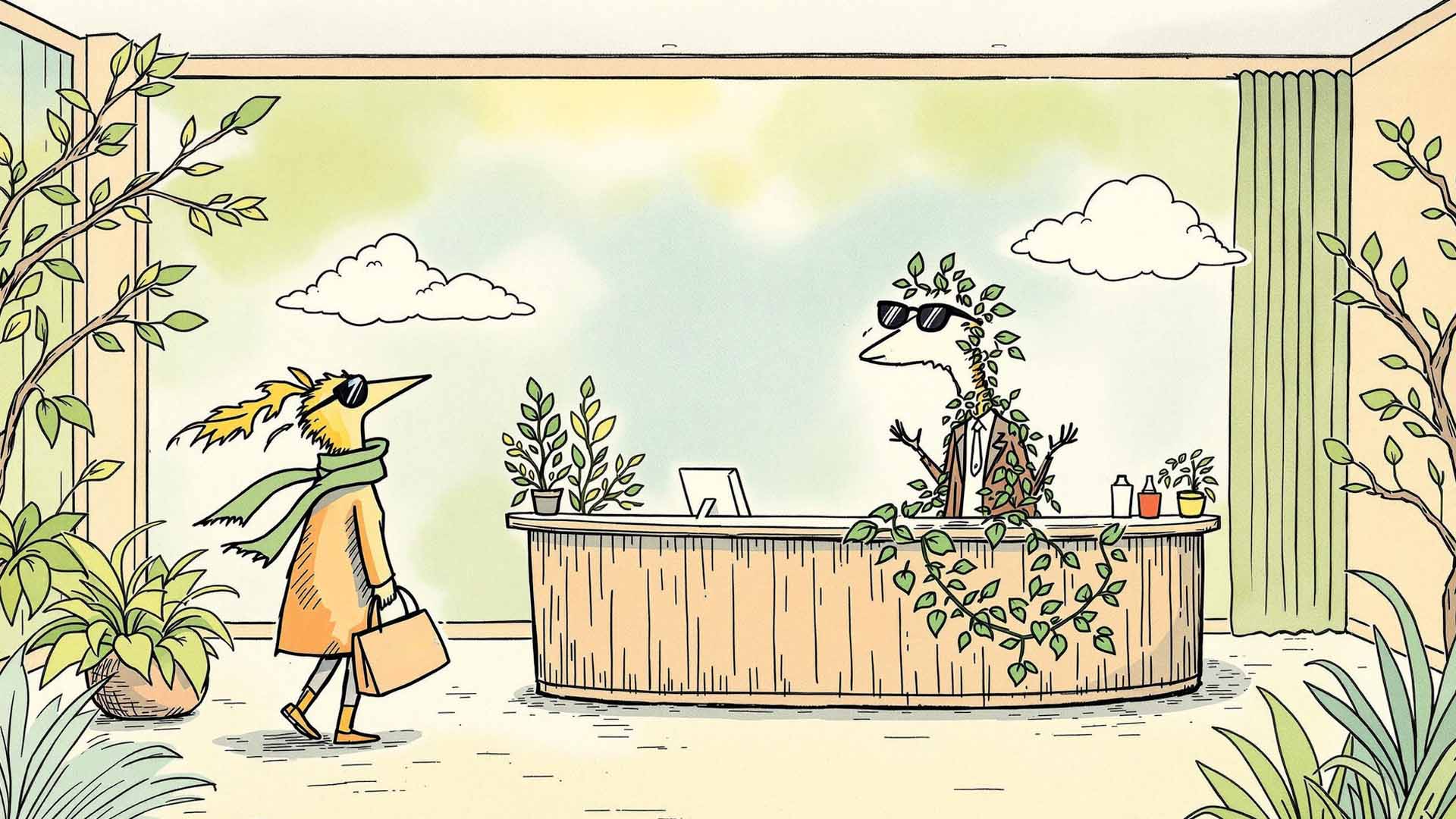High on Impact: Dangayach Group, The Quiet Game-Changer
Meet Harimohan Dangayach, a soft-spoken visionary who crafts exclusive experiences with passion and humility. Preferring to let his work speak for itself, he has quietly built the Dangayach Group into a hospitality leader, eschewing fanfare and spotlight for a relentless focus on delivering exceptional results. Alongside his son Atul, Managing Director of the group, Harimohan shares his insights on navigating global partnerships, maintaining exceptional standards, and capitalising on India's thriving hospitality landscape.
By Rupali Sebastian
A gemstone enterprise in 1970
A jewellery venture in 1995. A real estate undertaking in 2000. A hospitality endeavour in 2003. All of them were successful. Harimohan Dangayach’s career has been defined by his ability to spot and act on opportunities, even when those opportunities seemed unconventional or risky to others. Focusing on the hospitality vertical in particular, his foray into the sector was prompted by his observation of a ‘vacuum’ in Jaipur’s market, which he addressed by getting The Park Plaza to the Pink City. The success of this debut ultimately led to the establishment of Jaipur Marriott in 2010, a 370-room property that was, at the time, one of the largest of its kind in the region.
The decision to open such a large hotel was met with scepticism by some, who viewed it as an overextension. However, convinced that the project would not only succeed but also catalyse a transformation in Jaipur's hospitality landscape, the intrepid entrepreneur, who serves as the chairman of the Dangayach Group, forged ahead. His conviction was well-founded; the opening of Jaipur Marriott coincided with a significant uptick in Jaipur's popularity as a wedding destination, a trend that continues to this day.

With 370 rooms, Jaipur Marriott Hotel was the largest in Jaipur when it opened.

Novotel Jaipur has been appreciated for its spacious, immaculate rooms, efficient housekeeping, and inviting ambience.
An impressive portfolio
Today, the Dangayach Group has expanded its hospitality portfolio significantly, with properties in multiple locations and partnerships with various international hotel brands. The company currently owns and operates seven hotels, including Jaipur Marriott, Le Meridien Hyderabad, Radisson Agra, Ramada Jaipur, Chomu Palace near Jaipur, Sheraton Edison in New Jersey, USA, and Novotel at JECC Jaipur. The group’s most ambitious project, Waldorf Astoria Jaipur, is set to become India’s first Waldorf Astoria when it opens in 2027.
Spanning 22 acres, the property will feature expansive pool villas and 174 guest rooms, further cementing the group’s reputation for luxury and quality. Breaking from its track of partnering solely with international brands, the Dangayach Group recently inked a deal with ITC for a new property in Jaisalmer, which is slated to open by the end of 2024. This move marks a strategic shift for the group, reflecting its willingness to explore new partnerships while maintaining its commitment to quality.

With views of the iconic Taj Mahal, Radisson Hotel Agra provides a comfortable stay close to the city centre.
Building strong relationships with renowned brands requires mutual respect, transparency, and a shared commitment to excellence.
Atul Dangayach
Managing Director, Dangayach Group

Strong synergies
To bolster its presence in multiple segments, from economy to luxury, the Dangayach Group collaborates with a diverse range of brands, such as Marriott, Accor, and Hilton. “Building strong relationships with these renowned brands requires mutual respect, transparency, and a shared commitment to excellence,” notes Atul Dangayach. Atul is Harimohan’s son and the Managing Director of the Group. Educated in the USA, he brings a fresh perspective to the business, blending global insights with the strong values of commitment and innovation established by his father.
“Each brand brings its unique strengths to the table,” he continues, “and our role as owners is to align our goals with theirs, ensuring that the brand’s values and standards are upheld while also catering to the specific needs of our market.” This is achieved by maintaining a constant dialogue with management teams to guarantee alignment on goals, expectations, and operational strategies. As Harimohan aptly puts it, “Success hinges on a shared vision.” By upholding brand values and standards while catering to local needs, the group creates distinctive properties that exceed expectations.
This hands-on approach has served the group well in an industry where owner-operator conflicts are not uncommon, and owner aspirations are often at loggerheads with brand guidelines. “I think they're in sync with each other, right? When we decide to partner with a brand, we understand it, and we are also fully aware that we have to deliver on customer expectations. They just go together,” Atul explains.

The poolside at the 276-key, newly renovated, full-service Sheraton Edison Hotel Raritan Center, New Jersey, USA.
Matters of design
The hotel serves as a physical manifestation of the owner's and the brand's shared vision and values, a harmonious fusion of their respective ideologies. According to Dangayach Senior, the appointment of creative experts, including architects, is a painstakingly deliberate process that necessitates close collaboration between the owner and the brand's team. “While the final decision often rests with the owner, it’s essential that the chosen architects align with the brand’s vision, standards, and design philosophy,” he notes.
The owner's profound understanding of local culture, market preferences, and operational intricacies affords them significant latitude in design input, providing invaluable insights that shape the final design in contextually relevant ways. However, Atul also stresses the importance of respecting the brand's established design language and standards. “This collaboration allows for a design that is both innovative and true to the brand’s identity,” he says.
Through this synergistic approach, the owner and brand can craft a space that is not only distinctive and memorable but also harmonises with the broader brand ethos, ensuring consistency across all properties while allowing for unique, site-specific expression. This principle applies to any spatial exercise connected to capital improvement or renovation, which typically aims to modernise, upgrade, or introduce new elements. “Such activities significantly contribute to comfort, convenience, and overall satisfaction, as well as help the property to stay competitive,” says Atul. “Brands have considerable influence in these situations, particularly in ensuring that any changes align with their identity and standards.”

Ramada by Wyndham Jaipur is ideally situated in the heart of the Pink City, just 15 minutes from the train station, airport, and bus terminal.
Quality drives success
Regardless of the segment they operate in, quality remains a core value for the Dangayach Group. This commitment to quality extends beyond the construction phase and into the ongoing management of their properties. Harimohan insists that partnering with a reputable hotel brand does not mean taking a back seat once the hotel is operational. “We build quality, and we make sure it's maintained well by the operating team,” he says. “We hold them accountable. We constantly monitor the guest satisfaction score to check that it exceeds brand standards. And we are on top of every minor customer issue, ensuring that the team addresses and implements improvements immediately.” Atul emphasises that the group looks at various metrics—including F&B offerings, RevPAR index, market share, and MPI—while assessing a brand-partner’s performance, offering suggestions for calibrating each aspect, if needed. This analytical approach ensures that the group’s partnerships are not only strategic but also aligned with their long-term goals.
Finding fresh paths
One area of the hospitality market that has caught Atul’s attention is the boutique hotel segment, which has seen significant growth in recent years. Although the Dangayach Group has yet to enter this space, Atul believes that boutique properties will continue to gain popularity, particularly as the market matures. “I think boutique properties have found their place recently. And I feel eventually, you will see more boutique hotels come up. We might see larger boutique properties as the market matures,” he reflects, adding that the group would be keen to explore this segment once customers fully understand the value proposition of boutique hotels. This approach of staying attuned to market trends and seizing the right moment has fuelled the group's organic growth. “There’s no specific target,” Harimohan says with a smile, “only opportunities.”

Le Meridien Hyderabad offers a 5-star experience with 241 spacious rooms near key landmarks.
Tests and triumphs
Looking ahead, Harimohan Dangayach identifies several challenges that hotel owners must navigate, including acquiring land at the right price, securing a skilled construction workforce, and finding qualified hotel staff. The latter, in particular, is a critical concern for Dangayach. “You’ll build a hotel, but if you don’t have the right people, how will you run it?”, he asks. Despite these challenges, his outlook remains optimistic.
“All our hotels are doing well. The corporate sector is strong in Bengaluru and Hyderabad. The wedding sector is thriving in Rajasthan. Even now, demand outstrips supply, no matter the amount of inventory being pumped into the market,” he observes, adding that he expects the tourism industry to continue its upward trajectory for at least another decade. “A hotel is not a commodity. It takes time to build, and by the time those new rooms are available—say in three to four years—the market has also grown.”
The Dangayach Group’s successful introduction of Waldorf Astoria, an epitome of luxury and glamour, serves as a testament to the Indian market’s evolution, particularly in the luxury sector. In addition to this transformation, two more factors, says Atul, drove the decision of getting Hilton’s iconic brand to India: the country’s rich cultural heritage, and his team’s ability to deliver on the brand’s high standards. He notes that India’s luxury market is primed for a brand like Waldorf Astoria, which offers unique, high-end experiences, emphasising that “the Indian market is ready for a brand that represents the pinnacle of luxury and personalised service”.
By merging Waldorf Astoria’s global legacy with India’s distinctive charm, Atul aims to create a truly exceptional offering. “We saw an opportunity to deliver unforgettable, bespoke experiences that showcase the best of both worlds,” he explains.
The Dangayach Group’s journey in the hospitality industry is a testament to the power of vision, adaptability, and a relentless commitment to quality. As they continue to expand and diversify their portfolio, Harimohan and Atul Dangayach remain focused on building a legacy that prioritises excellence in every aspect of their business. And for those considering entering the hospitality business, Dangayach Senior offers a simple but powerful piece of advice: “Do it only if you have the passion. And put yourself in your customer’s shoes. If you need something, they will need it too.”

















